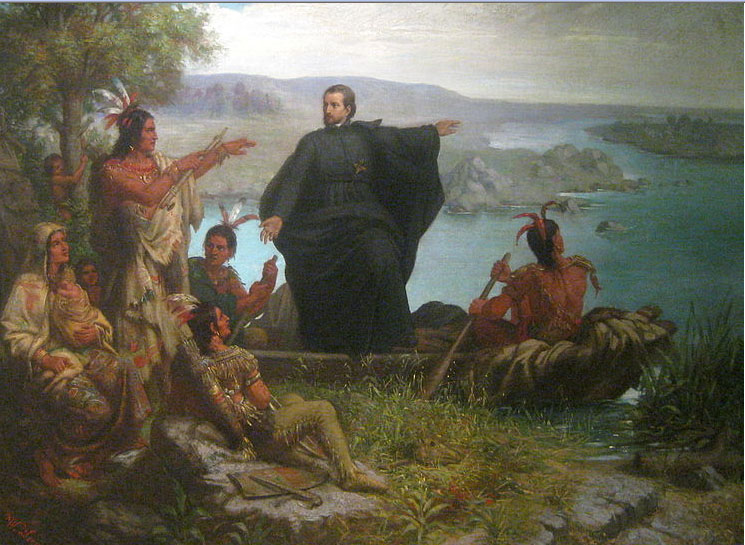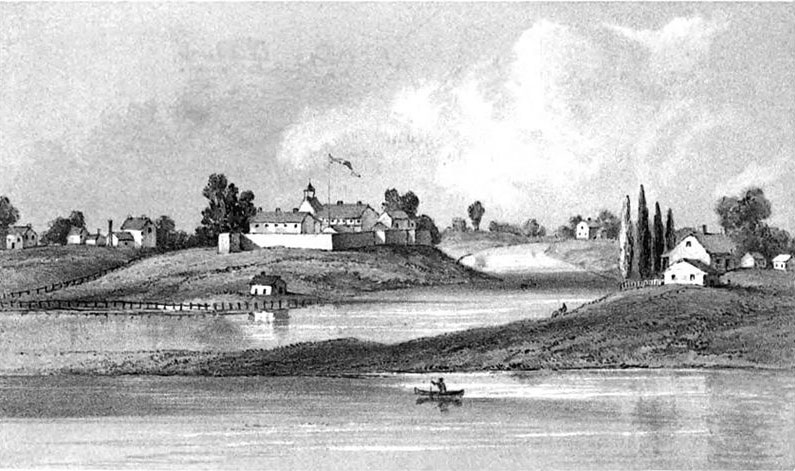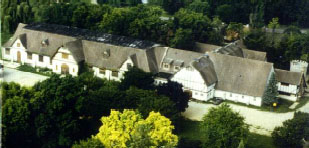
Lake County before settlement was a place of general resort for the Potawatomi Tribe of Indians. The written history of Illinois began in the year 1673 with the exploration by Rev. Jacques Marquette, S.J. (1637-75). At that time, the Illinois territory was ruled by France. When the French lost the French and Indian War, they surrendered all their North America territory to England. During the revolutionary war, U.S. attacked the British forts in Illinois and Illinois became part of the Northwest Territory of the United States in 1787.
In 1808, the Illinois territory reached 11,000 with settlers moving to Illinois from Kentucky, Virginia and Maryland. The Native Americans were upset with this and sided with the British in the War of 1812 and they attacked Fort Dearborn which is the present site of Chicago. The Potawatomi quickly made peace with the Americans.
 At this time, this territory was claimed by the Potawatomi Tribe. In the Grant Forest Preserve can be seen Kentucky Coffee trees which the Native Americans used the shiny seeds for games and trade. The Potawatomi lived too far north for reliable agriculture so a large part of their diet was wild game and fish. They tended large fields of corn, beans, and squash and also enjoyed wild rice, red oak acorns and maple syrup.
At this time, this territory was claimed by the Potawatomi Tribe. In the Grant Forest Preserve can be seen Kentucky Coffee trees which the Native Americans used the shiny seeds for games and trade. The Potawatomi lived too far north for reliable agriculture so a large part of their diet was wild game and fish. They tended large fields of corn, beans, and squash and also enjoyed wild rice, red oak acorns and maple syrup.
The Potawatomi were called the Potawatomink which means “people of the place of fire” or “keepers of the Sacred Fire.” Their role with the Ojbwe and Ottawa was the keeper of the council fire. They were a people of the upper Mississippi River region and they were a member of the Algonquian family.
In 1818, an act of Congress made Illinois a state. Illinois originally did not border Lake Michigan. Its northern boundary was at 42° 30', which was 17 miles south Chicago River. Nathaniel Pope was the Territorial Delegate to the U.S. Congress who fought to give Illinois some lake front territory. An amendment was made and the boundary of Illinois and Wisconsin was changed to where it is at the present day.
The U.S. then got down to business in the removal of Native Americans in Illinois. A treaty was signed in Chicago in 1821 which was the first of major land cession by the Potawatomi since 1807. In 1832 the Black Hawk war began where the Sauk tribe tried to take back their land in Illinois. It was a short lived war. The last Indian Treaty in Illinois was negotiated and concluded at Chicago Sept. 26, 1833 by which the Pottawatomi ceded to the United States all of their territory in Illinois. Chicago at this time was just an insignificant frontier town.
 In the 1880’s growth was spurred in the Chain O’Lakes area when E.J. Lehmann “Merchant Prince of State Street” and owner of “The Fair” became interested in the lake region and brought the Wisconsin Central Railway to Lake Villa in 1887. E.J bought the Stewart Hotel overlooking Cedar Lake while his son Otto Lehmann had an estate with a coach and stable that had prizewinning horses from Arabia. In 1953, Otto died and his property was subdivided up to become Fox Lake Hills. His coach and stable was converted to a Church for the Holy Family.
In the 1880’s growth was spurred in the Chain O’Lakes area when E.J. Lehmann “Merchant Prince of State Street” and owner of “The Fair” became interested in the lake region and brought the Wisconsin Central Railway to Lake Villa in 1887. E.J bought the Stewart Hotel overlooking Cedar Lake while his son Otto Lehmann had an estate with a coach and stable that had prizewinning horses from Arabia. In 1953, Otto died and his property was subdivided up to become Fox Lake Hills. His coach and stable was converted to a Church for the Holy Family.